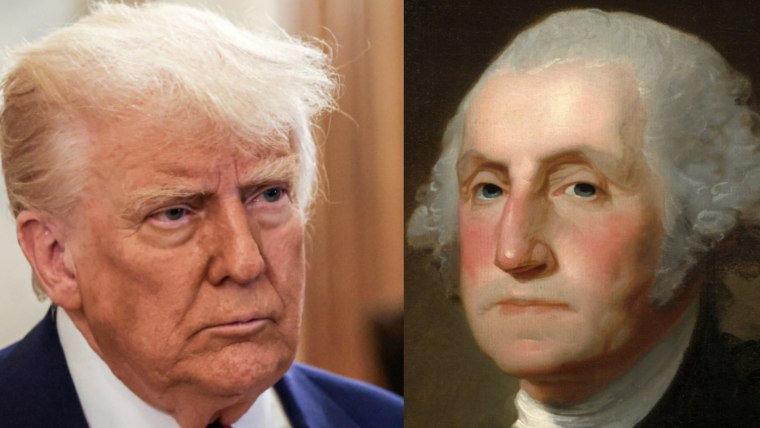In the early hours of the Fourth of July, Donald Trump took a moment to celebrate the vote tallies on the Republican Party’s domestic policy megabill. “WOW! 218-2,” the president wrote online at 1:31 a.m. local time. “Has a number like that ever happened before???”
It was an odd message. For one thing, plenty of major bills have passed in the House with unanimous partisan support, so it wasn’t as if Thursday’s vote was somehow unprecedented. For another, the GOP’s reconciliation package didn’t pass 218-2; it passed 218-214.
Or put another way, by Trump’s estimation, the Democratic minority in the chamber, in a rather literal sense, didn’t count.
Hours earlier, the Republican spoke at a rally in Iowa, where he shared some related thoughts about his political opposition. NBC News reported:
Every Democrat in Congress voted against the ‘Big, Beautiful Bill,’ many fiercely criticizing the expected cuts it would bring to Medicaid. ‘They wouldn’t vote only because they hate Trump, but I hate them, too, you know?’ Trump said. ‘I really do. I hate them. I cannot stand them, because I really believe they hate our country.’
He didn’t appear to be kidding.
To be sure, the rhetoric probably didn’t surprise many. After all, during his 2024 candidacy, Trump described Americans he disagreed with as “evil,” and condemned Democrats — not just in Congress, but Democratic voters in general — as “the enemy within.”
But that doesn’t mean his latest rhetorical escalation is unimportant.
Right off the bat, it’s worth noting that the comments generated headlines because they were so unusual: In the American tradition, elected leaders, especially around Independence Day, have never voiced public “hatred” for those who dare to disagree with them. It was a timely reminder that Trump apparently doesn’t see himself as the president of the whole country, so much as he sees himself as the head of “Red America.”
What’s more, if the Republican wants to pick a fight over who “hates our country,” it’s also worth remembering that he’ll lose every fight over basic American patriotism.
Let’s also not forget the degree to which Trump promised a far more bipartisan approach to policymaking. In 2016, for example, the future president vowed to avoid executive orders and pursue a more constructive and collaborative approach. “You know, it’s supposed to be negotiated,” he declared. “You’re supposed to cajole, get people in a room, you have Republicans, Democrats, you’re supposed to get together and pass a law.”
I have some bad news for those who believed him.
But stepping back, as important as these elements are, there’s another angle to this that arguably matters more. Different political scientists define the nuances of authoritarianism in different ways, but I think most would agree that a hallmark of any despotic regime is the delegitimization of political opposition.
It’s against this backdrop that the incumbent president, using language foreign to American ears, wants the public to believe that his partisan opponents literally don’t count, are inherently unpatriotic, and are worthy of his hatred.

